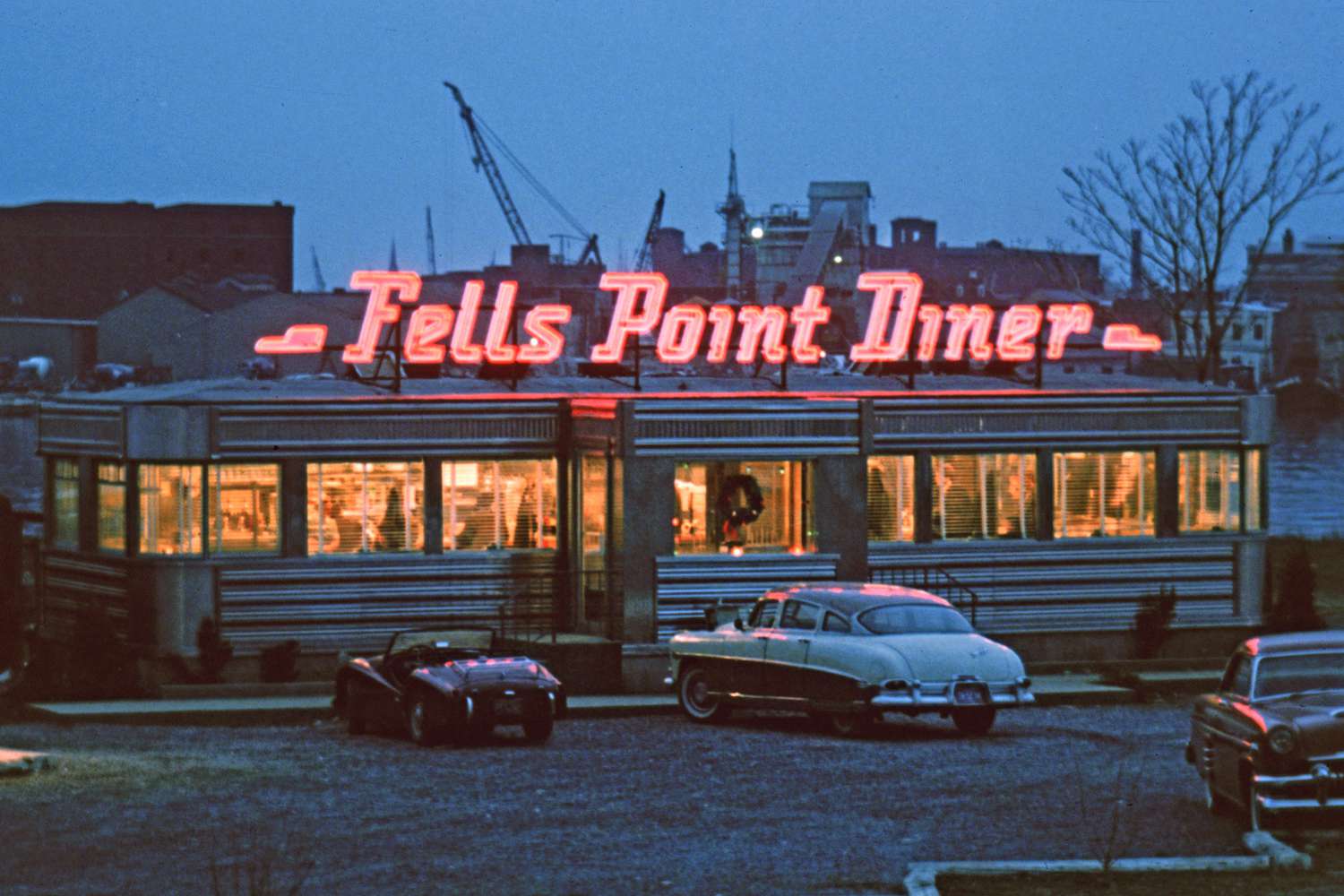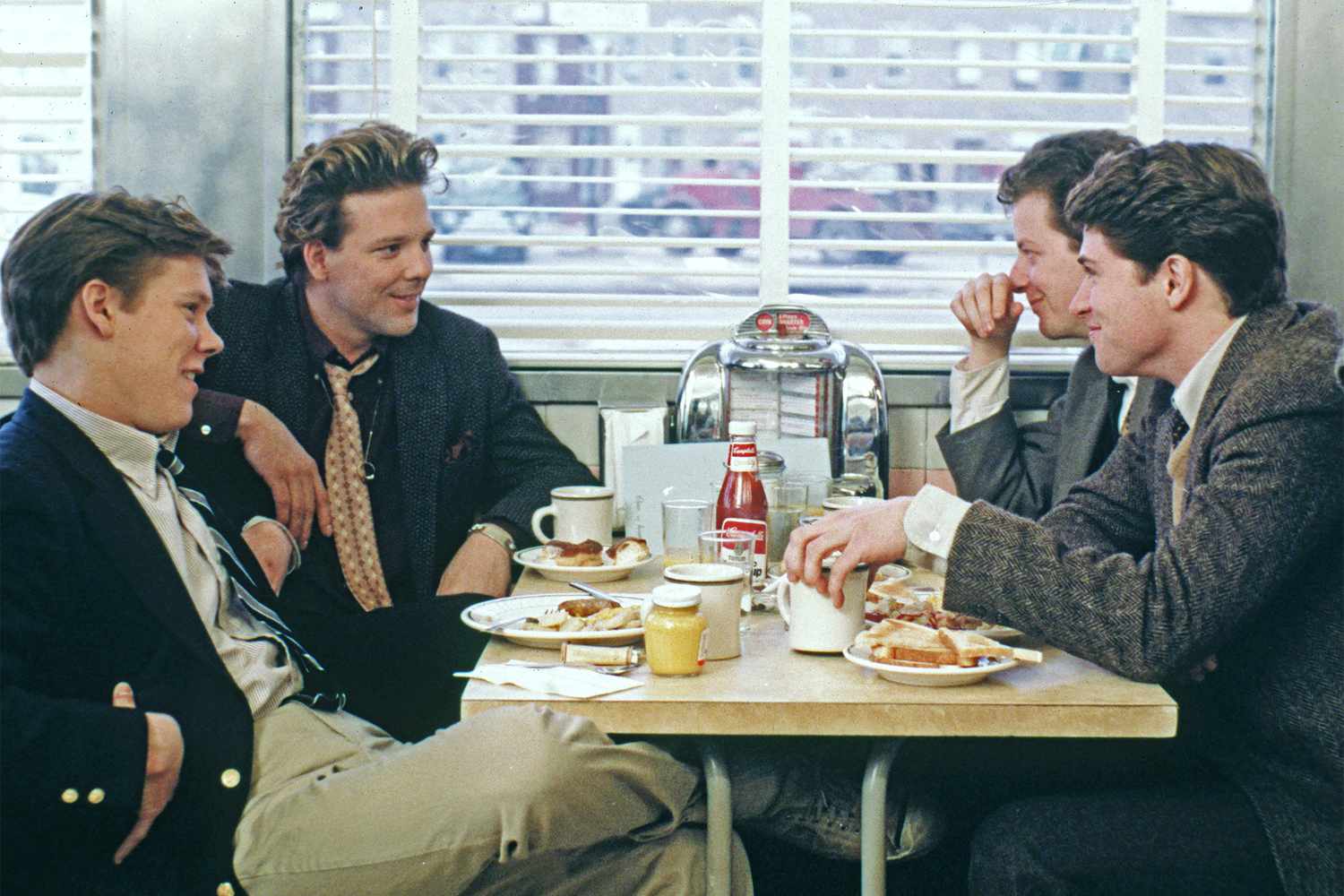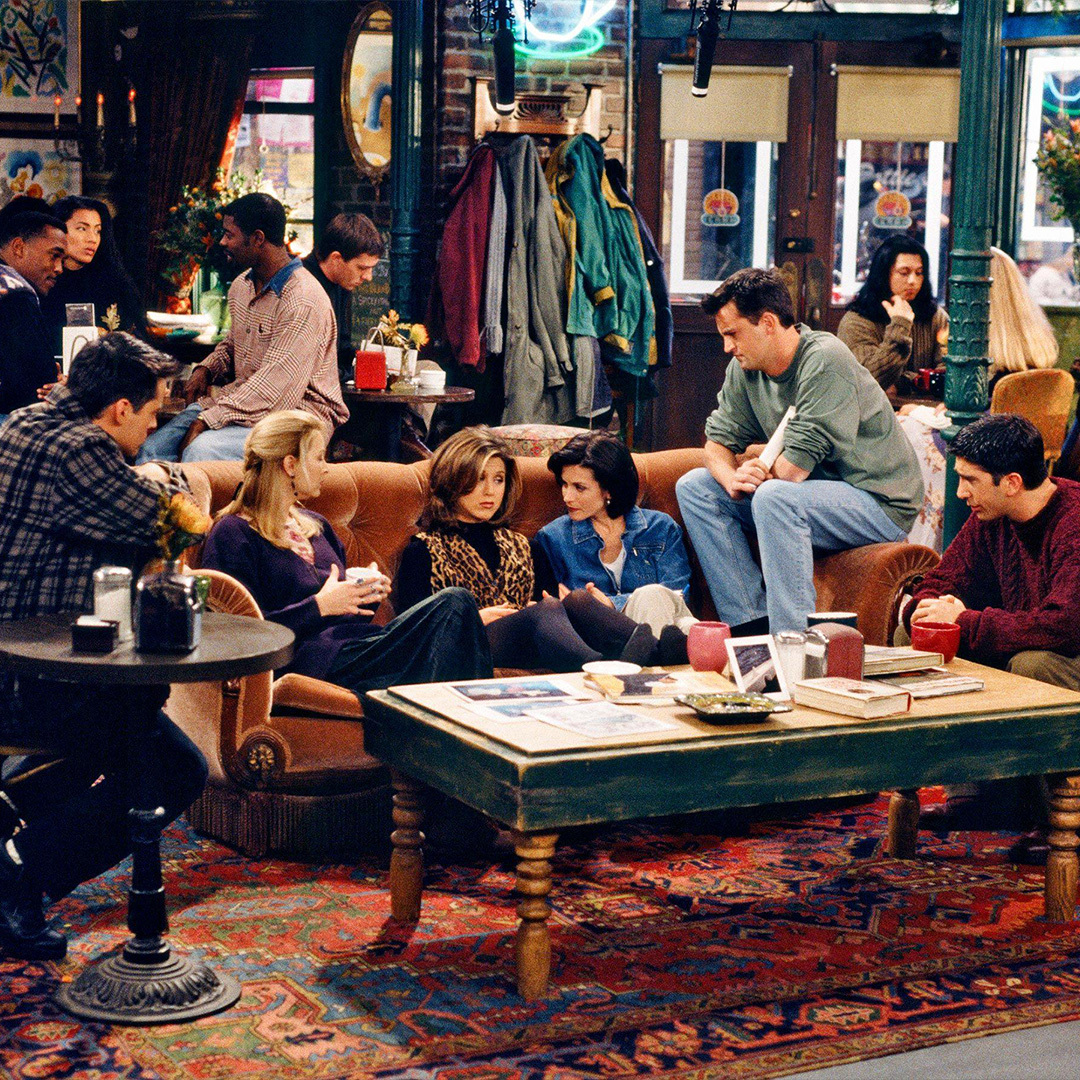

As discourse around the vanishing of ‘third spaces’ crescendos, for his column ‘The Edible Screen,’ cook and writer Jago Rackham watches Barry Levinson’s 1982 Diner and is left with a sense of yearning for the lack of regularity in the spaces and time we spend with friends.
The sixth form dining room at my grammar school had a portrait of the Queen above the table, her face stern and humourless. We played a game called Save the Queen, where a coin was dropped into your drink and you’d drain it as quickly as possible, to prevent the Queen from drowning. A struggle if the liquid was hot. We debated whether we’d enter the royal bed, reaching the interlinked heights of schoolboy eloquence and misogyny, producing the consensus that we would, if only to tell the tale.
I was put in mind of this dining table while watching Diner, Barry Levinson’s first film. Centred around Fells Point Diner, in it a group of male high school graduates enter adulthood with jolts and shocks, with excitement and dread. Shrevie is newly and unhappily married; Eddie is soon-to-be married; Boogie is betting too much and playing around, the consequences hot on the back and his neck; and Fenwick is struck by the ennui often felt by clever and privileged young people just out of school, their comfortable situation offering little distraction and too much time to think. A loose plot is laid out—it’s about growing up!—gently told with an accretion of vignettes, but really this is a vehicle for the film’s true quarry: friendship.



I didn’t just think of my school dining room because the boys in Diner are similarly puerile, but because of the way Levinson captures a particular sort of easy conversation, the sort that springs up from time spent without pressure, without urgency, on a regular basis, in the same place. Such friendships are the best thing about school, bolstered by in-jokes and secret language, by a world of lore and history. There’s a scene where Shrevie, a record obsessive, is driving with Fenwick, and Fenwick starts testing him on what’s playing on the radio—the name of the album, the track listing, the flip side. It is a scene glinting with unmatched joy. It’s not that Shrevie’s getting the questions right, it’s that Fenwick knows to ask them.
Levinson’s not exploring intense and overwhelming friendships between two men—as in Brideshead Revisited—which haunt and damage, but the friendships that exist between groups, where people are at once beloved and interchangeable. When I went into the dining hall I wasn’t expecting to run into anyone in particular, but the group in general. In Diner the guys end every night out at Fell’s Point, running into the others, where they can laugh at the fat man as he eats his twenty sandwiches, make fun, eat, flirt,centre themselves. It’s where the guys will be.
We crave easy company like this. Entering our thirties, my partner and I keep decrying our lack of community, by which we mean easy and sustained company. We have a rich and complex social life, but an atomised one, reliant on planning and rarely spontaneous. A group of my friends tried to start meeting at a pub every Sunday, but couldn’t manage to make it stick. Maybe our idea of adulthood has been spoiled by sitcoms like Seinfeld and Friends.
Friends was the most influential. I remember when the last episode aired and the perfect friendship group it depicted, balanced by gender and interdependence, but more than that reliant on close proximity and Central Perk, where they know they’ll run into each other. In Diner, when Bobby’s best man is picked up from the station, the friends head straight for Fells Point, where they know the rest will be. They eat hamburgers and french fries with gravy (a kinship between Baltimore and the north of England I didn’t know existed) which the camera often lingers on, noting how important the food is in this place of safety.

I have only one friend I see more than once a week and share such jokes with each other. I want more! I want neighbours I love and a pub where my friends are part of the furniture. When I watch a sitcom, I develop a parasocial relationship with the cast—my city might be vast, frightening and lonely, but theirs is not.
Jago Rackham
Seinfeld had its own diner, How I Met your Mother and It’s Always Sunny in Philadelphia their bars and The Big Bang Theory the Cheesecake Factory. I have only one friend I see more than once a week and share such jokes with each other. I want more! I want neighbours I love and a pub where my friends are part of the furniture. When I watch a sitcom, I develop a parasocial relationship with the cast—my city might be vast, frightening and lonely, but theirs is not.
We might be tempted to think that Friends et al are unrealistic. That no one has friendships like these. But they do: at schools, but also in smaller towns, where geographic proximity allows. In Friends the impossibility of this is explained away in the last episode when, almost as an aside, Monica mentions they’ve been able to afford their well endowed apartment for all these years because of rent control, a nod to the show’s setting’s increasing improbability. In contemporary urban life, few people can choose which area of a city they live in, but must settle somewhere just-about affordable and not-quite horrible. It’s hard to sustain an everyday friendship when everyone lives an hour away, has to work long hours, is tired and poor. But to see the Friends as an impossibility is to believe high rents and the way they prevent community as inevitable. Yet until the 1990s, when London and New York were relatively cheap, such community was feasible. Rent control might make them feasible again. During a long stay in Barcelona, a much smaller place, I tasted this, knowing friends would be in a certain square, that I’d pass them on the way home. I had a similar feeling when I lived in the suburbs.
The enduring popularity of sitcoms like Friends shows we wish for such situations, if only they were possible. Diner takes a slightly different look, however, for it concerns friendships before dissolution. Some of the boys will go off to university, some will get involved in the mob. At Bobby’s wedding, the best man’s speech ends on a sombre note: “now you’re married, you’ll spend less time with the guys.” In Diner, growing up is growing apart, but at the back of this realisation is the knowledge that other groups will form, that there’ll be other places where everybody knows your name.





